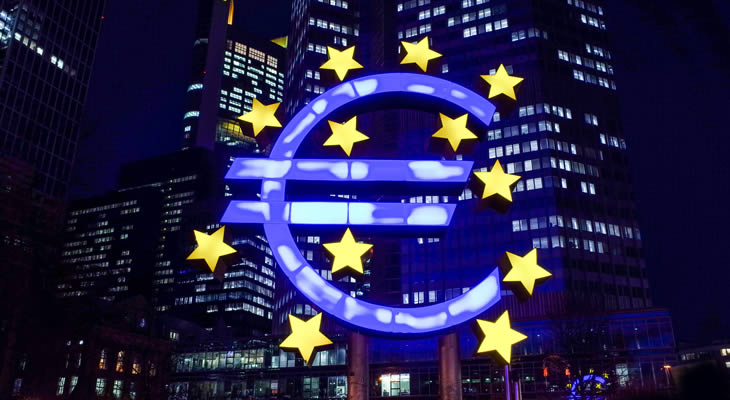Pound to Euro Exchange Rate Only Up Slightly despite Euro’s Mid-Week Plummet
Despite the Euro (EUR) slumping in reaction to European Central Bank (ECB) news in the middle of the week, the Pound to Euro (GBP/EUR) exchange rate has struggled to really capitalise on the Euro’s weakness.
Since opening this week at the level of 1.1223, GBP/EUR has seen mixed movement. GBP/EUR briefly slumped to a post-January low of 1.1149 earlier in the week, before rebounding strongly on ECB speculation.
After touching on a high of 1.1268 in the middle of the week though, GBP/EUR has slipped slightly. At the time of writing today, GBP/EUR was being pushed lower by a slightly more resilient Euro, and the pair trended closer to the level of 1.1230.
Central Bank news has been the focus for investors this week, and it has weakened both the Pound and the Euro. UK political developments and the latest Eurozone ecostats have also been influencing movement.
Pound (GBP) Exchange Rates Struggle to Sustain Gains as Bank of England (BoE) Cuts Growth Outlook
The Pound had been climbing against rivals like the Euro earlier in the week, due to speculation that the Bank of England (BoE) would be more hawkish about monetary policy compared to the European Central Bank (ECB) and other major Central Banks.
The BoE has maintained this year that its next move is more likely to be a rate hike, and that hikes could come at a faster pace than markets expect.
As a result, Pound investors were disappointed when the bank’s hawkishness appeared slightly dulled in its June policy decision on Thursday.
The bank did still indicate that it planned to hike rates in the coming years, but the bank also cut its Q2 2019 growth forecast to a stagnant 0.0%.
On top of this, the BoE’s overall caution about Brexit and the global economy caused speculation to rise that the next move could be a rate cut instead of a hike.
Euro (EUR) Exchange Rates Supported by Signs of Strength in Eurozone PMI Stats
The primary cause of the Pound to Euro exchange rate’s Friday morning losses was a slightly stronger Euro though, as the Eurozone’s latest PMI projections from Markit beat expectations in many key prints.
Eurozone PMIs had been falling short of expectations in recent months, with key manufacturing figures across the bloc even falling into contraction.
As a result, today’s news that German services and manufacturing PMIs are projected to be slightly better than expected offered the Euro some fresh support.
While Germany’s manufacturing PMI only lightened slightly to a still disappointing 45.4, the slightly better than expected data was still able to take some pressure off the Euro this morning.
It is the only notable domestic support the Euro has seen all week, after the shared currency was weakened by European Central Bank (ECB) President Mario Draghi’s surprisingly dovish comments since Tuesday.
Pound to Euro (GBP/EUR) Exchange Rate Outlook to be influenced by Eurozone Inflation
Tuesday’s speech from European Central Bank (ECB) President Mario Draghi saw him acknowledge that unless Eurozone inflation started to improve, the bank would likely need to loosen Eurozone monetary policy.
Draghi indicated that the bank would be willing to cut Eurozone interest rates or reintroduce quantitative easing (QE) schemes.
As a result, bets that the bank will become more dovish will only rise if next week’s key German and Eurozone inflation rate stats disappoint investors.
German inflation projections for June will be published on Thursday, and the Eurozone’s overall June inflation projection will come in on Friday.
These are likely to be the week’s most influential datasets for GBP/EUR traders, but the week’s Eurozone consumer and business confidence stats could be influential as well.
On top of this, as June draws to an end, Pound to Euro (GBP/EUR) exchange rate traders will be looking ahead to how the G20 summit could influence US trade tensions, as well as looking for developments in the UK Conservative Party leadership contest.


Comments are closed.